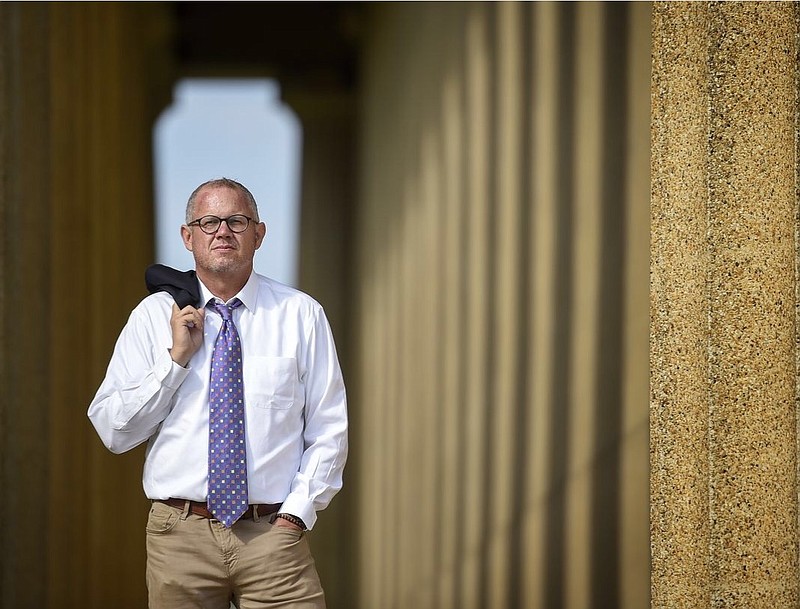The silence surrounding addiction is opioid expert Dr. Stephen Loyd's nemesis.
"We'll sit in our Sunday school class on Sunday mornings, and we'll pray that somebody sells a piece of property, which is fine," said Loyd, the keynote speaker for the Community Partnership Conference that took place Friday in Dunlap, Tenn.
"But that same person has a kid that's struggling with addiction, or has a family member, or a husband, or a wife and nobody will open their mouth and say anything," he said.
Loyd has many titles, including associate professor at the Quillen College of Medicine at East Tennessee State University and chief of medicine at the Mountain Home VA Medical Center. But his mission is to eliminate what he believes is the biggest hurdle to overcoming the nation's opioid crisis: stigma.
Last year, the United States lost at least 63,000 Americans to drug overdoses, while Tennessee loses an average 4.5 lives per day, Loyd said.
"If that many people were dying in plane crashes, none of us would fly," he said.
A diesel mechanic's son from a small town in East Tennessee turned physician, Loyd said he was living the good life.
Although he struggled to control his drinking when he consumed alcohol, Loyd managed to forge ahead through medical school. But the pressures of balancing family life with becoming a young doctor eventually piled up.
Then, on a particularly bad day, he happened upon some unused pain medication left over from a previous dental procedure.
"I felt like I'd found a cure for my anxiety and depression," he said.
Time went on, and Loyd continued practicing medicine, even though his opioid addiction was spiraling out of control, until the point he was taking about 100 pills a day.
"Asking someone to 'just stop' drugs is like asking someone to stop eating," he said, as he explained the neurological effects of addiction.
"This is the area of the brain that's hijacked by opioids," he said, pointing to the limbic system, the portion of the brain that controls humans' survival drive.
"These people will do things to get their drug that defy reasonsing to you, because they think they will die if they don't have it," Loyd said. "Nothing comes before the drug."
This July will mark 14 years of sobriety for Loyd. He still has cravings, but now he understands the science behind addiction, something he said wasn't taught in medical school.
Now he's working to educate today's medical students, current physicians, law enforcement officers, and members of communities such as Dunlap on strategies to better combat addiction.
Judy Graham, director of Sequatchie Valley Head Start, which organized the conference, asked Loyd to speak after a presentation he gave to the Tennessee Public Health Association during the fall.
"I thought he just had such a compelling statement about the opioid epidemic that has [gripped] the lives of so many people," Graham said. "To come and give his personal message, it just really connected with the audience and people with these struggles."
Contact staff writer Elizabeth Fite at efite@timesfreepress.com or 423- 757-6673.
